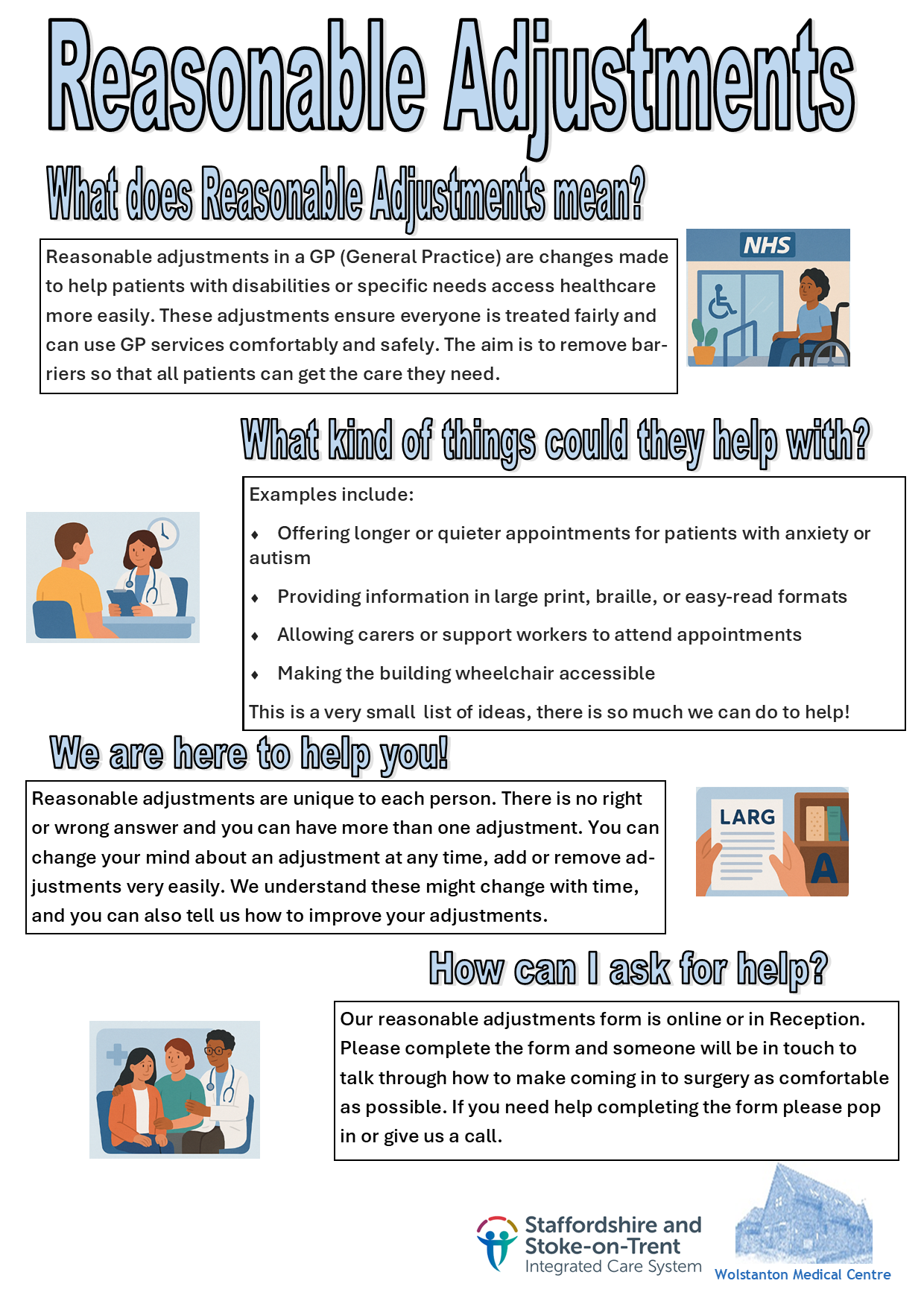
The NHS uses something called the Reasonable Adjustments Digital Flag (RADF) to make sure that people with disabilities or long-term health conditions get the same access to healthcare as everyone else. This supports the Equality Act (2010), which protects your rights.
The flag is a note added to your NHS record. It shows what adjustments (changes or support) you may need to make it easier for you to use NHS services and so NHS staff know how best to support you.
Examples where the Reasonable Adjustments Digital Flag would be useful are:
- Patient lip reads (so communication should either be face-to-face or written).
- Patient is blind (so communication should be verbal or in brail and not written).
- Patient has a speech impairment (so may find written communication easier).
- Patient has dementia (so may need to be reminded of appointments the day before/on the day).
- Patient is disabled & requires wheelchair access
This information will be kept on the NHS Spine (which is a safe and secure NHS computer system) and we will only do this if you agree to give your consent.
Other NHS services that can use the NHS Spine will be able to see your reasonable adjustment needs. These services include A&E, hospitals, ambulance staff, pharmacists, and dentists.
What are the benefits of telling your GP of any reasonable adjustment?
- It reduces stress for you and your carers because you don’t have to explain your needs every time you use healthcare services.
- It helps make healthcare easier for everyone to use.
- Screening services can change how they work so everyone can take part.
The examples above are not the only ways we can help. Reasonable adjustments can help with many different needs, including:
- Vision (blindness or partial sight)
- Hearing (deafness or partial hearing)
- Mobility (difficultly walking short distances or climbing stairs)
- Dexterity (difficulty lifting and carrying objects or using a keyboard)
- Learning/understanding/concentrating difficulties.
- Memory impairments (dementia/Alzheimer’s)
- Mental health (anxiety/agoraphobia)
- Respiratory impairments
- Fatigue (e.g., chronic MS)
- Social or behavioural impairments (Aspergers or ADHD)
If you have any of the needs mentioned above, please tell us. We also ask you to agree to share this information with other health services. This helps us make your healthcare easier and better for you.
Helpful Resources
How to access urgent and emergency care
How to get a Hospital Passport or Health Profile
How to create your Social Story and what a Social Story might look like
What to take in your emergency Hospital bag
If you would like to tell us information about how we can make reasonable adjustments for you please complete our
Reasonable Adjustments Questionnaire
We’d love to hear about your experience with our service and any reasonable adjustments we’ve made. Please download, complete, and return this form to share your feedback.
